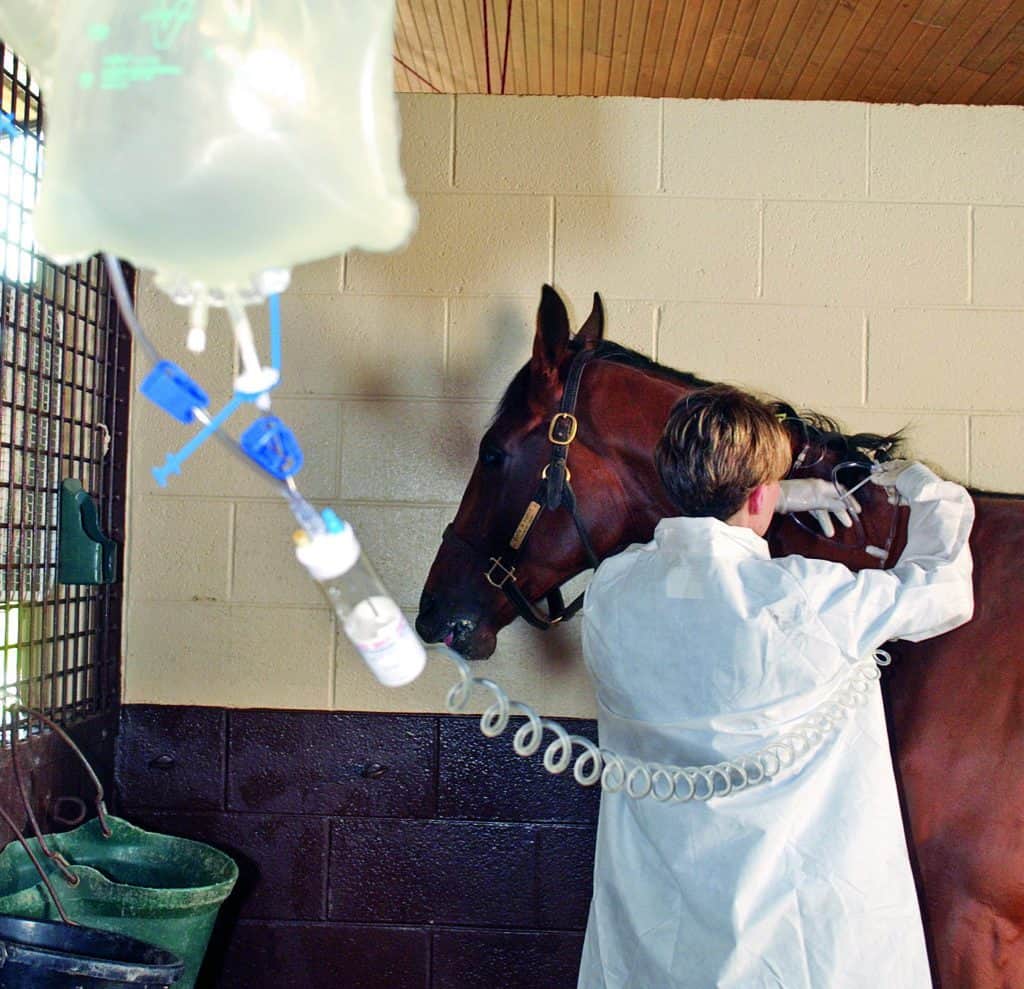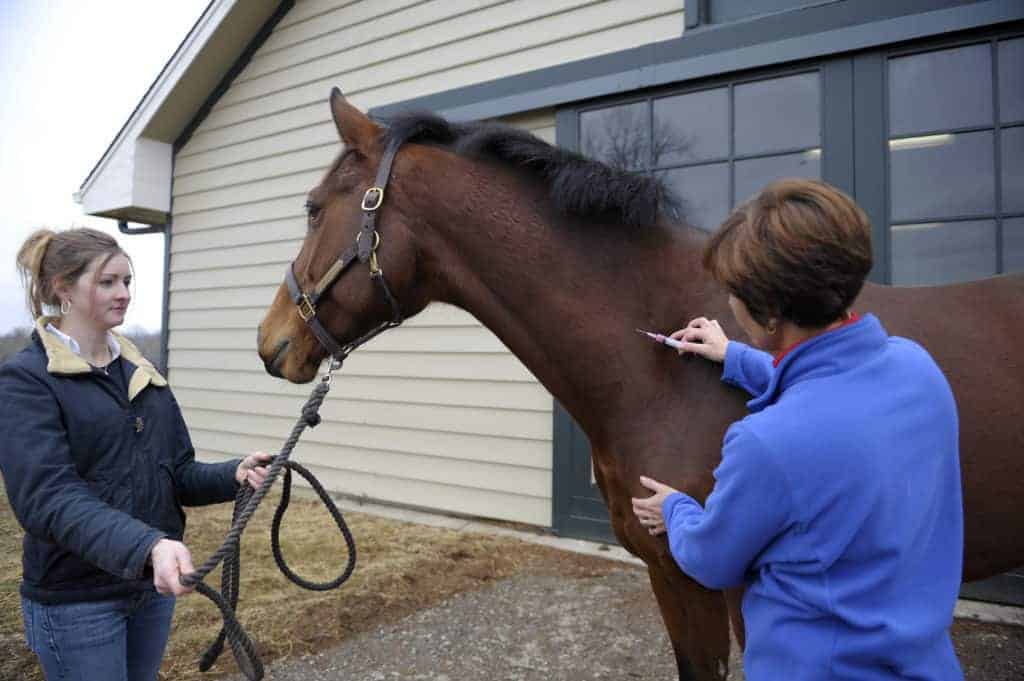The Future of Equine Influenza

Researchers are striving to better understand this fast-spreading virus before its next next mutation.
Understanding Potomac Horse Fever

Potomac horse fever often poses a diagnostic challenge because of its varied clinical presentations.
Equine Rabies: Should You Be Concerned?
Rabies, an uncommon disease in Colorado, began a steep rise in the state starting in 2008. The first case in a horse was confirmed in Douglas county in 2009, and a sharp increase in the number of cases in skunks has been noted in 2010. Recently, rabies cases were reported in skunks in Adams, Arapahoe, Douglas, and Elbert counties.
EEE, WEE, and VEE (Eastern, Western, and Venezuelan Equine Encephalitis)
Author?s Note: My grandfather and his neighbors in southern Idaho lost several work horses to “brain
Vaccination Yearly Planner

Immunizations are the cornerstone of disease prevention if given appropriately and in a timely manner.
Handling a Choking Horse
All animals can choke, including horses. When it happens, it should be considered a medical emergency. A horse chokes when its esophagus is obstructed, rather than the trachea, or windpipe. Although horses are still able to breathe in this
Potomac Horse Fever: Cause and Treatment
Potomac horse fever (PHF) is a disease that affects horses during warm weather months, occasionally causing outbreaks of diarrheal illness in horses that are kept near rivers, streams, or in irrigated pastures.
Strangles: Dispelling the Myths

The infection caused by the bacteria Streptococcus equi,, commonly known as strangles, has been described in horses for almost 800 years. The name strangles describes the condition in which an affected horse is suffocated as lymph nodes i
Equine Infectious Anemia: Symptoms and Control

Equine infectious anemia is characterized by fever, anemia, jaundice, depression, edema, and chronic weight loss.
Chronic Obstructive Pulmonary Disease
The official title for an all-too-common respiratory ailment in horses is chronic obstructive pulmonary disease (COPD). For the average horse owner, however, that rather cumbersome title has been reduced to a single word: heaves. Other people







